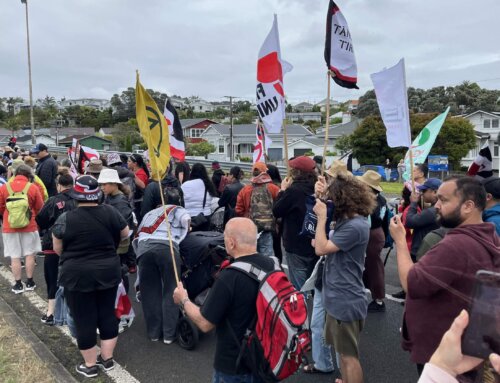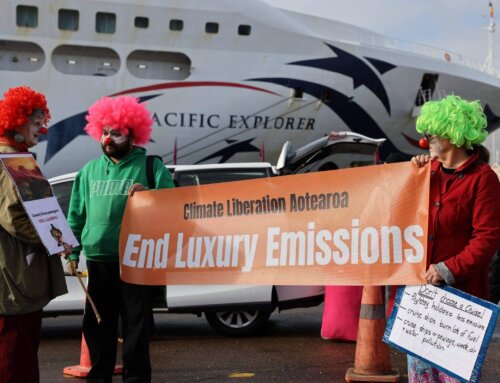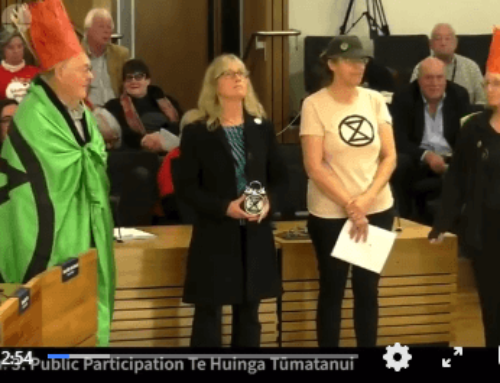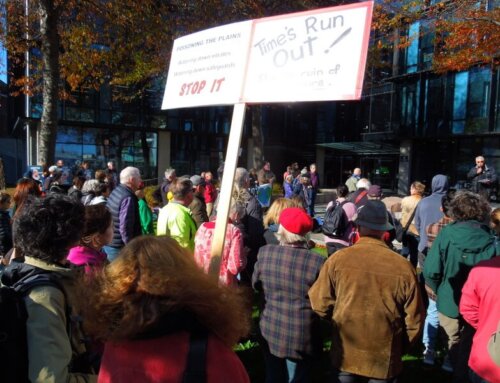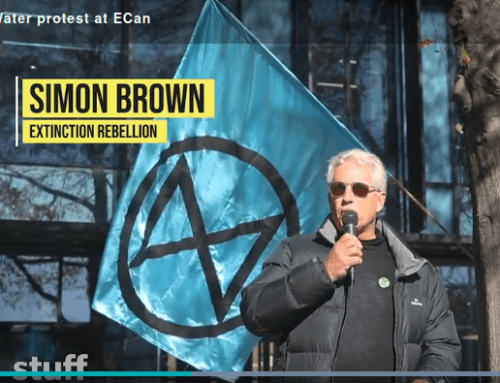
by Haimana Hirini
The wet and wild Paekākāriki village was the site of the first-ever national XR Aotearoa hui in July 2019, which brought rebels from around Aotearoa together to confirm our path forwards. This much-anticipated hui came following months of weekly meetings that were held in Pōneke Wellington and around the country, uniting people who were passionate about rectifying the climate crisis, and who had been fortified with the message of XR resounding in their breasts: Rebel for Life.
At this meeting, the rebels were presented with new principles (modified to fit our Aotearoa context), established based on feedback collated from various regional hui. The drivers of this work believed strongly that amplifying indigenous voices to reflect our unique historical context was essential in order to capture the hearts and minds, and the moral imperative.
At this hui, we were asked and tasked to translate XR Aotearoa’s Demands & Principles.
In accordance with kaupapa Māori principles, we returned to our people and were guided by our elders who kindly obliged us with their time, their ear and their thoughts. They offered alternatives if parts of the translation didn’t sound or feel ‘right’. It must be stated that the Māori translation of the Demands & Principles is not a word-for-word translation of the English. It was translated so that a Māori speaker would see, hear and feel the Māori world’s viewpoint (not just its kupu) reverberating within. Naturally, therefore, we also translated this Māori document back into English, so that our whānau whānui could appreciate the difference in the ‘worlds’ we inhabit.
At that first hui, over two hundred rebels from around the motu converged on Paekākāriki and were welcomed on in Māori with a pōwhiri. The translations were presented to a full tent in the rain and people were free to ask questions about the translations – which they did, for an hour and a half. In the end we overwhelmingly voted in favour of the translations: 96% for, 2% against and the rest abstaining. In addition, at the very last hui of that weekend, a similar vote was received urging XR Aotearoa to raise indigenous voices.
Re-indigenisation is an endeavour everyone must undertake: tangata whenua, tangata tiriti, tangata moana alike. The brutality of empire affects both coloniser and colonised. It tries to legitimise its invalid dominion and deceives each participant into believing that its constructs are benevolent and natural. Unfortunately, few in our society readily realise this, instead falling into replicating colonial structures, values and processes – XR Aotearoa included. Māori would argue, ‘It is these machinations and operations which has led us to our present moment.’ Hence it has taken longer than expected to get the Māori translation of the Demands & Principles agreed to and there are still those who resist their presence.
In this rebellion for life against the climate crisis, Māori and indigenous peoples have the more protracted objection and the most to lose, of the little they have left. The Māori Demands & Principles are a living and evolving body which is the anchor of Te Waka Hourua (double-hulled canoe). Modifications shortly to be made are: to position the principles at the head of the document, and the demands afterwards. Māori emphasise the basis of what we stand for, rather than the goals or objectives of that stance. What person would be listened to if they made demands without explaining who they were? What reaction would they receive? There are also additions to consider, such as the presentation by the National Māori Congress and other indigenous peoples to the 1992 Rio climate summit. The Māori Demands & Principles are your Demands & Principles, a gift to you, to Aotearoa and other nations from our people. Please, utilise them in the spirit that they are intended and articulated. Kia kaha.

